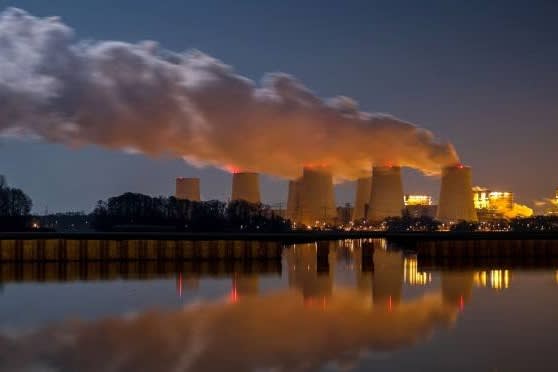The global financial system must be reformed because it facilitates “reckless emissions” that treat the world’s atmosphere “as an open sewer,” according to former US vice-president Al Gore.
In a wide-ranging interview with the Financial Times, the politician-turned-climate activist said the world could no longer afford for the finance industry to continue its large-scale backing of carbon-intensive projects.
Gore, who co-founded sustainable investment fund manager Generation Investment Management in 2004 with financier David Blood, said an overhaul of the banking, asset management and accounting industries was crucial if countries were to achieve the target of reaching net zero emissions by 2050.
Speaking ahead of the COP26 climate conference in Glasgow that starts next week, Gore said that growing inequality and the increasing number of so-called climate refugees — mass movement of people fleeing weather-related disasters — are “responsible for the emergence of populist authoritarianism in so many countries. So we have a sense of urgency that is spreading now.”
Gore called for increased regulation and disclosure to force banks, traditional asset managers, private equity firms and other asset owners to overhaul how they deal with climate change risks.
Banks and asset managers must stop lending or providing capital to companies that are engaged in “destructive practices” and increase their support of companies that can drive the transition to a low-carbon economy, he said.
It is suicidal for the human race to continue on this track and to pretend that it can be somehow negated by promising to plant trees here, there or elsewhere. This is simply not realistic
An investigation by the Global Witness campaign group found that global banks and asset managers extended a total of $119bn of financing to 20 big agribusinesses linked to deforestation in the five years since the Paris agreement was brought into force.
Gore believes that banks’ regulatory capital requirements should be changed to incorporate climate change and said that global accounting standards need to be reformed to put sustainability accounting and financial accounting into one broader framework. This would bring non-financial factors on to corporate balance sheets and calculate a monetary value for “externalities” — the costs of a company’s activities that it does not bear itself. This might be a company’s contribution to air pollution, its reduction of biodiversity or its impact on inequality.
Gore was critical of the market for carbon offsets in the push for net zero emissions, where companies buy offsets from groups that plant and protect trees, install renewable energy, or do other activities that aim to clean up the atmosphere — and bank them against their own emissions.
Offsets “can’t be a get-out-of-jail-free card,” he said. They have “a role to play”, but as a last resort: “the focus has to be on reducing emissions.”
“It is suicidal for the human race to continue on this track and to pretend that it can be somehow negated by promising to plant trees here, there or elsewhere. This is simply not realistic.”
Regulators globally are increasingly looking to make climate-related financial information mandatory for certain businesses. Gore said it was “critical” that these carbon disclosure requirements apply to asset owners and fund managers, as well as the companies they invest in — and that the rules apply to private and public companies alike.
He said the dominant role played by the private equity industry, which is on the back of a period of unprecedented growth, has become a cause for concern in cutting emissions. “When large asset managers offload assets [because of climate concerns], it underscores the need for mandatory disclosure in private equity so that those same assets don’t continue to operate under new owners in the shadows.”
Gore said it was “disappointing” that some world leaders, including Russia’s president Vladimir Putin and China’s Xi Jinping, were unlikely to go to Glasgow, but he added that he was optimistic that the forum would still be successful. “COP26 is likely to build on rather than lessen progress,” he said.
As part of our coverage of COP26 we want to hear from you. Do you think carbon pricing is the key to tackling climate change? Tell us via a short survey. We will share some of the most interesting and thought provoking answers in our newsletters or an upcoming story.
Follow @ftclimate on Instagram
Climate Capital

Where climate change meets business, markets and politics. Explore the FT’s coverage here.
Are you curious about the FT’s environmental sustainability commitments? Find out more about our science-based targets here

